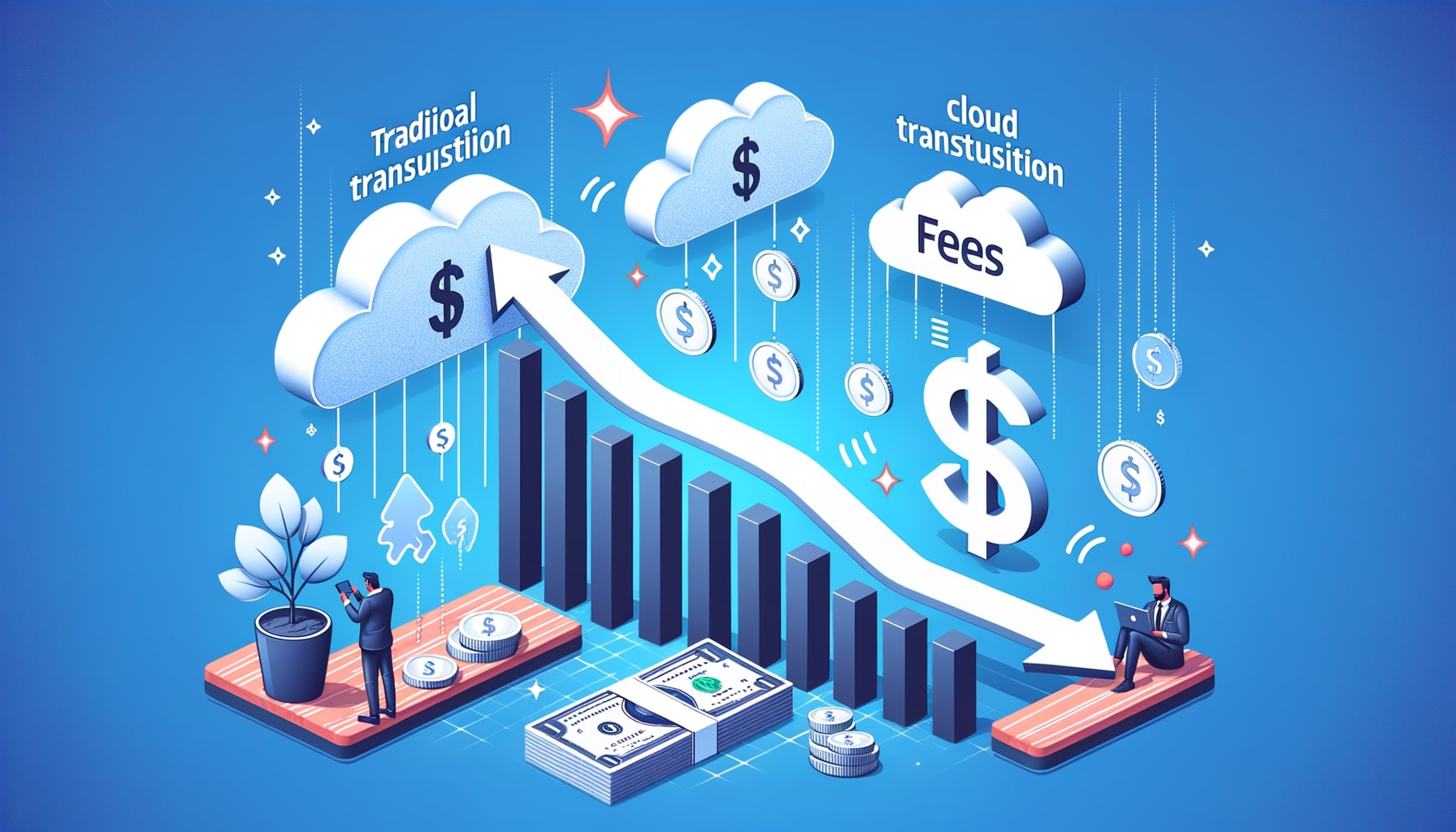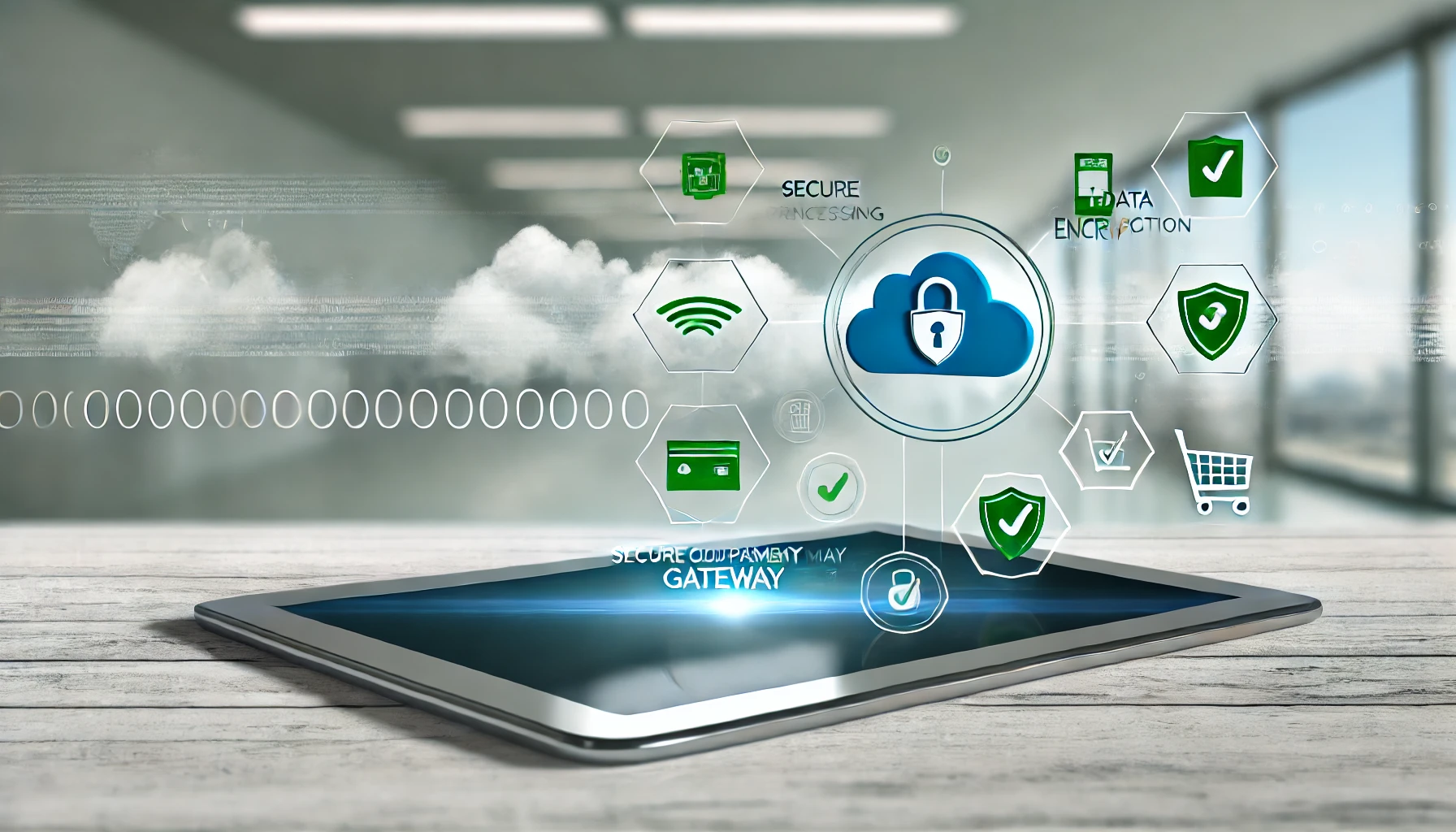Cloud-Based POS vs Legacy POS Systems
In today’s fast-paced business environment, having an efficient and reliable point-of-sale (POS) system is crucial for the success of any retail or hospitality establishment. With the advancements in technology, businesses now have the option to choose between cloud-based POS systems and legacy POS systems.
Understanding the difference between these two options is essential for making an informed decision. In this comprehensive guide, we will explore the advantages and disadvantages of both cloud-based and legacy POS systems, factors to consider when choosing between them, and how to transition from a legacy POS to a cloud-based POS system.
Advantages of Cloud-Based POS Systems
- Accessibility and Mobility: One of the key advantages of cloud-based POS systems is their accessibility from anywhere with an internet connection. This allows business owners and managers to monitor sales, inventory, and other important data in real-time, even when they are not physically present at the store. Additionally, cloud-based POS systems can be accessed from multiple devices, such as smartphones and tablets, providing flexibility and mobility to the users.
- Cost-Effectiveness: Cloud-based POS systems are often more cost-effective compared to legacy systems. With cloud-based solutions, businesses can avoid the upfront costs associated with purchasing expensive hardware and software licenses. Instead, they can opt for a subscription-based model, paying a monthly fee for the services they require. This eliminates the need for costly maintenance and upgrades, as the provider takes care of these aspects.
- Scalability: Cloud-based POS systems offer scalability, allowing businesses to easily expand or downsize their operations without significant disruptions. As the business grows, additional registers or locations can be easily added to the system, and the data can be seamlessly synchronized across all devices. This scalability is particularly beneficial for businesses with seasonal fluctuations or those planning to expand in the future.
- Data Security: Cloud-based POS systems often provide enhanced data security compared to legacy systems. The data is stored in secure servers, protected by encryption and regular backups. This reduces the risk of data loss due to hardware failures or theft. Additionally, cloud-based systems typically have built-in security features, such as user access controls and activity logs, ensuring that sensitive information is only accessible to authorized personnel.
- Integration and Customization: Cloud-based POS systems offer seamless integration with other business tools and applications, such as accounting software, customer relationship management (CRM) systems, and e-commerce platforms. This allows for streamlined operations and eliminates the need for manual data entry. Furthermore, cloud-based systems can be easily customized to meet the specific needs of a business, with the ability to add or remove features as required.
- Automatic Updates: Cloud-based POS systems are regularly updated by the provider, ensuring that businesses always have access to the latest features and security patches. These updates are typically performed automatically, eliminating the need for manual installations and reducing the risk of system vulnerabilities. This ensures that businesses can stay up-to-date with the latest industry trends and regulations without any additional effort.
- 24/7 Support: Cloud-based POS systems often come with 24/7 customer support, providing businesses with assistance whenever they need it. Whether it’s a technical issue or a question about the system’s functionality, businesses can rely on the support team to resolve their concerns promptly. This ensures minimal downtime and uninterrupted operations, enhancing the overall customer experience.
- Real-Time Analytics: Cloud-based POS systems offer advanced analytics capabilities, providing businesses with valuable insights into their operations. With real-time data, businesses can track sales trends, monitor inventory levels, and identify opportunities for growth. These analytics can help businesses make informed decisions, optimize their processes, and improve their overall performance.
- Disaster Recovery: Cloud-based POS systems offer robust disaster recovery capabilities. In the event of a natural disaster, hardware failure, or any other unforeseen circumstances, the data stored in the cloud is safe and can be easily restored. This ensures business continuity and minimizes the risk of data loss, allowing businesses to quickly resume their operations.
- User-Friendly Interface: Cloud-based POS systems often have intuitive and user-friendly interfaces, making it easy for employees to learn and use the system. This reduces the training time and ensures that employees can efficiently process transactions, manage inventory, and perform other tasks. Additionally, cloud-based systems often provide detailed reporting and analytics in a visually appealing manner, making it easier for businesses to interpret and act upon the data.
Disadvantages of Cloud-Based POS Systems
- Dependence on Internet Connection: One of the main disadvantages of cloud-based POS systems is their reliance on a stable internet connection. If the internet goes down, businesses may experience disruptions in their operations, including the inability to process transactions or access important data. However, many cloud-based POS systems offer offline mode functionality, allowing businesses to continue operating even without an internet connection.
- Data Security Concerns: While cloud-based POS systems generally offer robust data security measures, some businesses may still have concerns about storing their sensitive information in the cloud. It is important for businesses to carefully evaluate the security measures implemented by the provider and ensure that they comply with industry standards and regulations. Additionally, businesses should regularly backup their data and have contingency plans in place to mitigate any potential risks.
- Customization Limitations: While cloud-based POS systems offer customization options, they may not be as flexible as legacy systems in terms of tailoring the system to specific business requirements. Some businesses with unique workflows or specialized needs may find it challenging to fully customize a cloud-based POS system to meet their exact specifications. However, most cloud-based systems offer a wide range of features and integrations that can accommodate the needs of the majority of businesses.
- Potential Downtime: Although cloud-based POS systems are designed to be highly reliable, there is still a possibility of downtime due to server maintenance, system upgrades, or other technical issues. Businesses should choose a reputable provider with a proven track record of uptime and ensure that they have backup plans in place to minimize any potential disruptions.
Advantages of Legacy POS Systems
- Offline Functionality: One of the main advantages of legacy POS systems is their ability to operate offline. Legacy systems typically store data locally, allowing businesses to continue processing transactions even when the internet connection is down. This can be particularly beneficial for businesses in areas with unreliable internet connectivity or those that require immediate transaction processing, such as fast-food restaurants.
- Customization Flexibility: Legacy POS systems often offer more customization options compared to cloud-based systems. Businesses can tailor the system to their specific needs, workflows, and branding requirements. This level of customization can be particularly advantageous for businesses with unique operations or those that require specialized features that may not be available in off-the-shelf cloud-based solutions.
- Familiarity and Training: Legacy POS systems have been in use for many years, and as a result, many employees are already familiar with their functionalities. This can reduce the training time required for new employees and minimize the learning curve associated with adopting a new system. Additionally, businesses that have invested heavily in training their employees on legacy systems may be hesitant to switch to a cloud-based solution due to the potential disruption and additional training costs.
- Control over Data: With legacy POS systems, businesses have full control over their data as it is stored locally. This can provide a sense of security for businesses that are concerned about storing their sensitive information in the cloud. Additionally, businesses can easily access and manipulate their data without relying on an internet connection or the availability of the provider’s servers.
- Legacy Hardware Compatibility: Legacy POS systems are often compatible with existing hardware, such as cash registers, barcode scanners, and receipt printers. This can be advantageous for businesses that have already invested in these devices and do not want to incur additional costs by replacing them. However, it is important to note that many cloud-based POS systems also offer compatibility with a wide range of hardware devices.
Disadvantages of Legacy POS Systems
- High Upfront Costs: Legacy POS systems typically require a significant upfront investment in hardware, software licenses, and installation. This can be a barrier for small businesses or startups with limited budgets. Additionally, businesses may need to incur additional costs for maintenance, upgrades, and technical support.
- Limited Accessibility: Legacy POS systems often lack the accessibility and mobility offered by cloud-based systems. Businesses can only access the system from the physical location where it is installed, limiting the ability to monitor operations remotely or make real-time decisions. This can be a disadvantage for businesses with multiple locations or those that require flexibility in managing their operations.
- Maintenance and Upgrades: Legacy POS systems require regular maintenance and updates to ensure optimal performance and security. Businesses are responsible for managing these tasks, which can be time-consuming and require technical expertise. Additionally, as technology advances, legacy systems may become outdated and incompatible with new software or hardware, necessitating costly upgrades or replacements.
- Data Security Risks: Legacy POS systems may pose higher data security risks compared to cloud-based systems. Storing data locally can make it more vulnerable to theft, hardware failures, or natural disasters. Additionally, legacy systems may lack advanced security features, such as encryption or user access controls, increasing the risk of unauthorized access to sensitive information.
- Integration Challenges: Legacy POS systems may have limitations when it comes to integrating with other business tools and applications. This can result in manual data entry, duplicate records, and inefficient workflows. Businesses that rely on seamless integration with other systems, such as accounting or inventory management software, may find it challenging to achieve the desired level of automation and efficiency with legacy POS systems.
Factors to Consider when Choosing between Cloud-Based and Legacy POS Systems
When deciding between cloud-based and legacy POS systems, businesses should consider several factors to ensure they choose the option that best suits their needs. Here are some key factors to consider:
- Business Size and Scalability: Cloud-based POS systems are often more suitable for small to medium-sized businesses that require flexibility and scalability. Legacy systems may be a better fit for larger businesses with complex operations or those that require extensive customization.
- Budget and Cost Considerations: Cloud-based POS systems typically have lower upfront costs and predictable monthly fees, making them more affordable for businesses with limited budgets. Legacy systems may require a significant upfront investment but may offer long-term cost savings for businesses that plan to use the system for an extended period.
- Accessibility and Mobility Requirements: If businesses require the ability to access the system remotely or manage multiple locations, a cloud-based POS system is likely the better choice. Legacy systems may be more suitable for businesses that primarily operate from a single physical location.
- Integration Needs: Businesses that rely on seamless integration with other systems, such as accounting or inventory management software, should carefully evaluate the integration capabilities of both cloud-based and legacy POS systems. Cloud-based systems often offer a wider range of integrations and APIs, making it easier to streamline operations and eliminate manual data entry.
- Data Security and Compliance: Businesses should assess the data security measures implemented by both cloud-based and legacy POS systems. Cloud-based systems often offer robust security features, such as encryption, regular backups, and user access controls. Legacy systems may require additional security measures to ensure the protection of sensitive information.
- Technical Expertise and Support: Consider the technical expertise available within the business and the level of support provided by the POS system provider. Cloud-based systems often come with 24/7 customer support, while legacy systems may require businesses to rely on in-house IT staff or third-party vendors for technical assistance.
How to Transition from Legacy POS to Cloud-Based POS Systems
Transitioning from a legacy POS system to a cloud-based POS system requires careful planning and execution. Here are some steps to consider when making the transition:
- Evaluate Business Needs: Assess the specific needs and requirements of the business to determine the features and functionalities required in a cloud-based POS system. Consider factors such as scalability, integration capabilities, and data security.
- Research and Compare Providers: Conduct thorough research to identify reputable cloud-based POS system providers that offer the features and functionalities required by the business. Compare pricing, customer reviews, and support options to make an informed decision.
- Data Migration: Plan and execute the migration of data from the legacy system to the cloud-based system. This may involve exporting data from the legacy system, cleaning and formatting the data, and importing it into the new system. It is crucial to ensure data accuracy and integrity during the migration process.
- Hardware and Software Integration: Evaluate the compatibility of existing hardware devices with the new cloud-based POS system. Determine if any additional hardware or software components are required for seamless integration. Coordinate with the POS system provider to ensure a smooth transition.
- Employee Training: Provide comprehensive training to employees on how to use the new cloud-based POS system. This may involve conducting training sessions, creating user manuals or video tutorials, and offering ongoing support to address any questions or concerns.
- Testing and Piloting: Before fully implementing the cloud-based POS system, conduct thorough testing and piloting to ensure its functionality and compatibility with the business’s operations. Identify and address any issues or challenges that arise during this phase.
- Phased Implementation: Consider implementing the cloud-based POS system in phases, starting with a pilot location or a specific department. This allows for a gradual transition and provides an opportunity to fine-tune the system before rolling it out to the entire business.
- Monitor and Evaluate: Continuously monitor the performance of the cloud-based POS system and gather feedback from employees and customers. Evaluate the system’s effectiveness in meeting the business’s needs and make any necessary adjustments or improvements.
FAQs
Q.1: What is a cloud-based POS system?
A cloud-based POS system is a software solution that allows businesses to process transactions, manage inventory, and perform other point-of-sale functions using internet-connected devices. The data is stored in the cloud, providing accessibility and mobility to the users.
Q.2: What is a legacy POS system?
A legacy POS system refers to a traditional, on-premise point-of-sale system that stores data locally on the business’s servers or hardware devices. These systems often require significant upfront investment in hardware and software licenses.
Q.3: Are cloud-based POS systems secure?
Cloud-based POS systems generally offer robust data security measures, such as encryption, regular backups, and user access controls. However, businesses should carefully evaluate the security measures implemented by the provider and ensure compliance with industry standards and regulations.
Q.4: Can cloud-based POS systems work offline?
Many cloud-based POS systems offer offline mode functionality, allowing businesses to continue processing transactions even without an internet connection. The data is synchronized with the cloud once the connection is restored.
Conclusion
In conclusion, both cloud-based POS systems and legacy POS systems have their own set of advantages and disadvantages. Cloud-based POS systems offer accessibility, scalability, cost-effectiveness, data security, integration capabilities, and user-friendly interfaces. On the other hand, legacy POS systems provide offline functionality, customization options, familiarity, control over data, and one-time costs.
When choosing between these two types of POS systems, businesses need to consider their specific requirements, budget, and long-term goals. It is crucial to evaluate the features, security measures, support options, and pricing structures offered by different providers. By carefully weighing the pros and cons, businesses can make an informed decision that aligns with their unique needs and contributes to their overall success in the competitive retail and hospitality industry.










